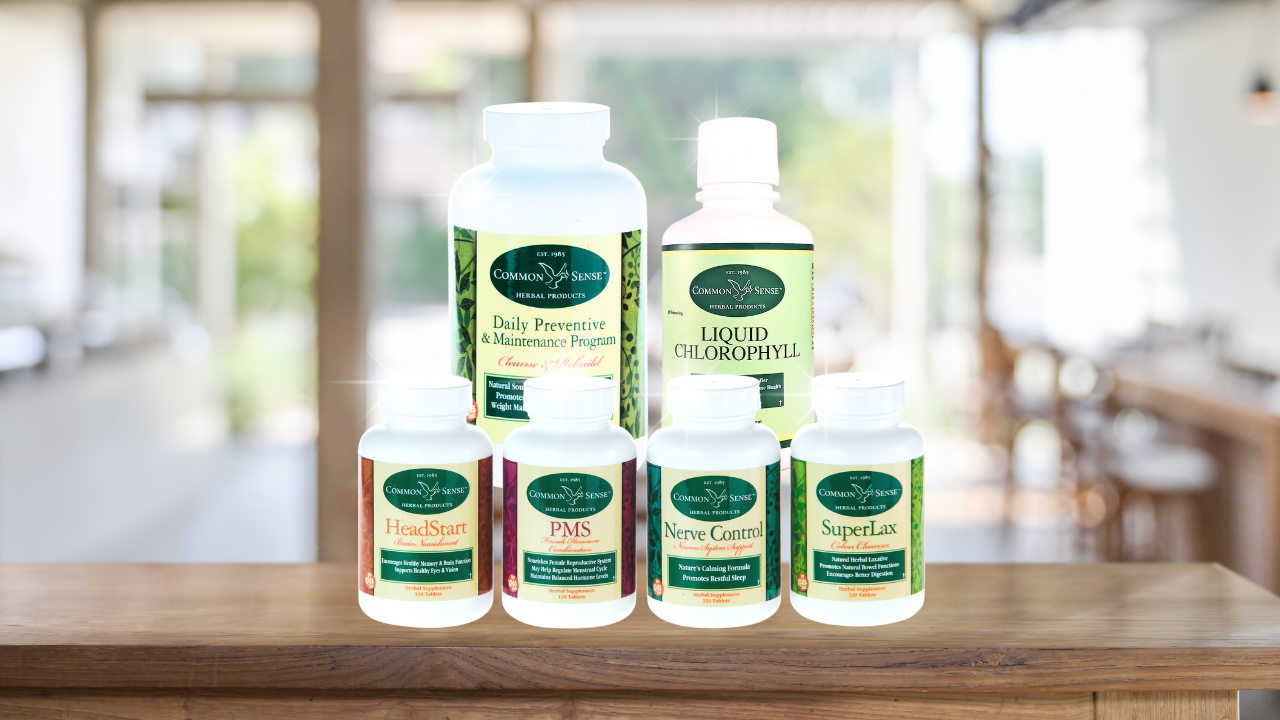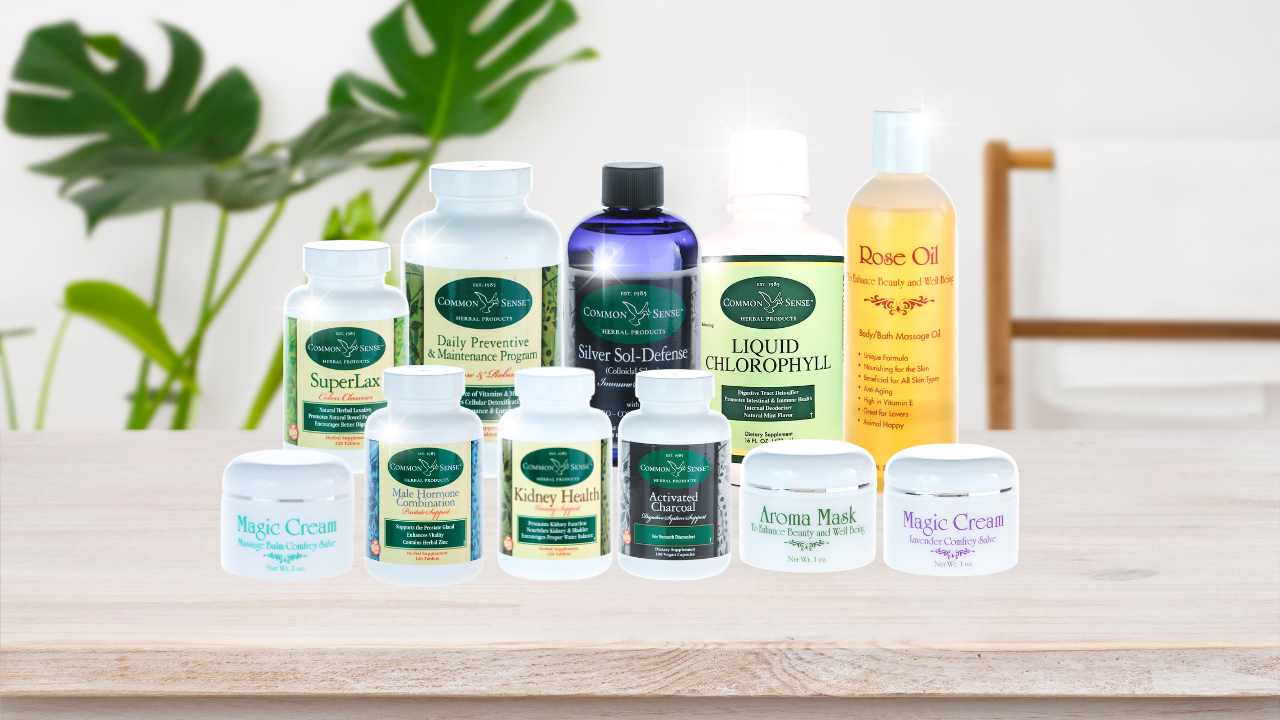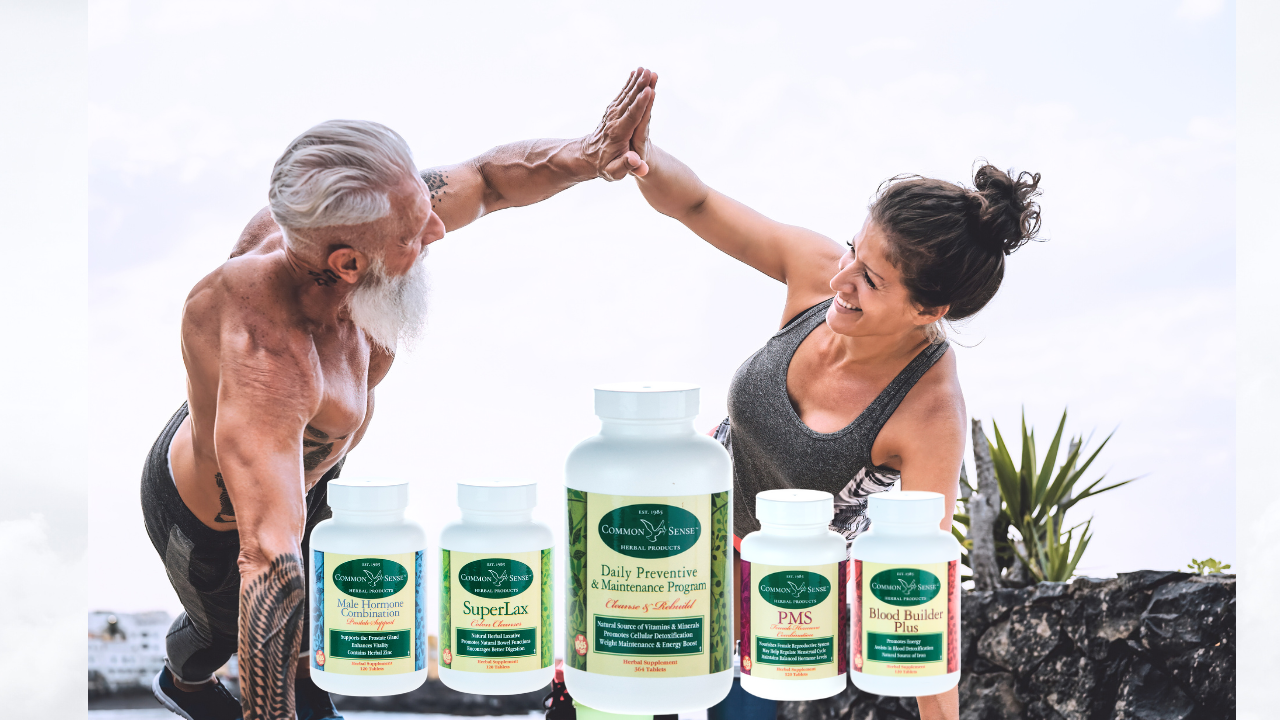
Like it or not, many of us who menstruate have to deal with PMS on a regular basis. Unfortunately, many common treatments for PMS contain chemicals that alter our natural processes and can sometimes even be toxic. The good news is that nature has provided us with excellent tools to soothe the more painful or uncomfortable aspects of our biology. There are many herbs for PMS that can help make that time of the month feel like any other day.
What Is PMS?
The term “PMS” gets thrown around a lot to refer to the more unpleasant symptoms of menstruation, but it actually refers to a specific condition. PMS stands for “premenstrual syndrome”, which is the state a woman's body enters in a week or two before their period begins. The symptoms that are involved are all caused by the body preparing to shed the lining of the uterus.
Everyone's experience with menstruation and PMS is different, so the specific set of symptoms may differ from woman to woman. Some women experience extreme symptoms and feel unable to engage normally with their day-to-day activities, and others may feel very little or nothing at all. There are a variety of other possibilities, but these present among the most common:
- Tension and/or anxiety
- Tender breasts
- Mood swings
- Change in libido
- Abdominal bloating
- Joint or muscle pain
- Headache
- Fatigue
8 Most Effective Herbs for PMS Relief
Nature's powers of healing are often overlooked by our society. We tend to look to synthetic options to treat our ailments, but often the best and most wholesome treatments already exist in our natural world. Here are some of the best herbs for PMS symptoms and for overall menstrual health:
1. Bayberry Root
High in vitamin C and often used to promote digestive health, bayberry root has also traditionally been used to treat heavy and painful periods. It can help control heavy bleeding and ease cramps.
2. Blue Cohosh Root
Blue cohosh root has been used to treat a variety of reproductive health issues. Because its chemical properties mimic the female hormone, estrogen, it is useful for treating menopausal symptoms as well as PMS. It also decreases tension in the uterus, which can help prevent painful cramps.
3. Cayenne Pepper
Also known as Capsicum, cayenne pepper is an amazingly powerful herb. Its primary power lies in balancing blood flow, which can help with increasing circulation to the extremities and even mitigate against excessive bleeding. It is also strongly associated with menstrual health since it can prevent heavy bleeding and break up blood clots, which are a major contributor to painful periods.
4. Cascara Sagrada Bark
Cascara Sagrada Bark, which gets its name from a phrase meaning "sacred covering", is the bark of a tree. It primarily promotes colon and gallbladder health, which are important parts of the digestive system. Since constipation is a common symptom of PMS, Cascara Sagrada can help prevent unpleasant constipation by strengthening the gallbladder and helping restore natural and regular movement to the colon.
5. Damiana Leaves
The leaves of the damiana plant, a wild shrub that grows in Mexico, Central America, and the West Indies, are used as a powerful hormone balancer for both male and female hormones. Traditionally used as an aphrodisiac, it can increase circulation and sensitivity in the sex organs, as well as restoring natural sexual desire. Since PMS symptoms result from temporary imbalances in the hormones, damiana leaves can help re-balance and ease the experience.
6. Ginger Root
Ginger root is another great ally of the digestive system and is often used to treat nausea and morning sickness. It can also help restore blood flow to the pelvic area, helping reduce certain PMS symptoms.
7. Red Raspberry Leaves
The red raspberry leaf is one of the most popular herbal supplements for female reproductive health and is often referred to as the "women's herb". These leaves are loaded with nutrients that can help tone and tighten muscles in the pelvic area, reducing the frequency and/or severity of menstrual cramps. It is also used to strengthen the uterus and prevent excessive bleeding after childbirth.
8. Valerian Root
Valerian root works primarily on the nervous system, promoting healing and calm throughout the body. It is typically used as a sleep aid but can also reduce heart palpitations, some headaches, hangovers, menstrual cramps, and pain after childbirth. Its effectiveness in promoting sleep is also helpful when symptoms of PMS result in insomnia or discomfort that prevents restful sleep.
Other Natural Treatments
If your PMS symptoms tend to be somewhat severe, you may be interested in utilizing other holistic or natural treatments in addition to herbal supplements. Many healthcare professionals and holistic healers recommend certain lifestyle changes to promote not only reproductive health but overall health that can help prevent or reduce certain symptoms associated with PMS.
Exercise
Physical activity can help reduce some pain and discomfort associated with PMS. During exercise, the brain releases chemicals called endorphins that have a naturally pain-relieving effect on the body. Certain stretch-based exercises like yoga and pilates can also have a relieving effect by increasing oxygen flow throughout the body, and certain poses and postures can ease pressure on the digestive and reproductive organs.
Stress Management
Certain studies have shown that higher stress levels can lead to more severe symptoms of PMS. Implementing things like meditation, healthy social activity, and self-care into your daily routine can help encourage a healthy menstrual cycle.
How Common Sense™ Products Can Help
At Common Sense™ Products, we know how important it is to take the best possible care of your reproductive health. That's why we created our Natural PMS Relief supplement, which contains all of the necessary herbs for PMS and makes you feel as healthy and energetic as possible throughout your menstrual cycle. Visit Common Sense Products online to view all of our products and care for your health the natural way.







